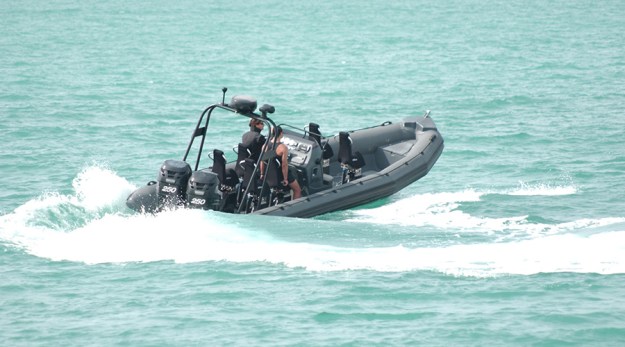Overpowering the boat is tempting if you are a “speed junkie” who wants to have some more excitement on the boating experience.
However, is it legal to overpower the boat?
What happens if you overpower a boat?
If you are one of the guys thinking about overpowering your boat, be sure to read the information inside to avoid possible troubles and make your boating journey go a long way.
Table of Content:
- Is it illegal to overpower a boat?
- Risks of overpowering a boat
- How do you tell if a boat is overpowered?
- Final Thoughts

Is it illegal to overpower a boat?
The legality of overpowering the boat has been asked and discussed among the boaters for quite a long time. The quick answer is it depends:
Overpowering a boat is illegal in states such as Florida, and you can be fined for overpowering a boat in states such as Virginia by the Coast Guard or Department of Game and Inland fisheries, but the state and local laws may vary regarding the overpowered boats.
Maximum loading and horsepower: No person shall operate any vessel described in subsection (1) when said vessel exceeds the maximum weight capacity, maximum persons capacity, or maximum horsepower capacity.
The 2021 Florida Statutes
Some other states and Coast Guards do not enforce the overpowering regulations and even those that do overlook anything under 10%. It’s recommended to check your state’s laws to see if the capacity plate is a legal limit or a guideline.
However, we need to remember that not being illegal doesn’t mean you should do that. Being safe is always the top priority. Besides that, make sure you are being cautious and careful on the boat in any situation even if you are not being overpowered.
Risks of overpowering a boat
Safety is the top priority. We can see crazy overpowered boat accidents happening now and then on the news. Overpowering a boat can cause serious accidents that every survivor will regret.
Insurance is also a big concern for overpowering a boat.
Insurance companies will not insure a vessel that is overpowered for its highest rating, and they do it for good reasons.
If anything happens to an overpowered boat, the insurance companies will not insure you if they find out that you are overpowering the boat.
You will also be in trouble with overpowering a boat when the coast guard checking is in place, and you will risk being held liable in the court even though it wouldn’t have been your fault.
Overpowering a boat is not as easy and fun as you may think.
Beware of the extra weight you get with an overpowered boat, especially if you are intended for a large horsepower motor.
That’s to say, it would be more difficult to get the outboard on the boat, you need to think about how to distribute the weight, and even worse, the boat might not go as fast as imagined due to the extra weight.
And putting a bigger motor on a boat than it is rated for can cause your boat to sit too low on the stern, making the boat susceptible to swamping.
Besides that, overpowering a boat can cause potential damage to your boat due to the extra pressure coming from the additional speed and weight. Over time, there could be significant damage to the transom and hull of your boat.
Overpowering a boat also means larger horsepower motors which equal to higher cost and possibly less fuel mileage. It is an important factor you need to consider before making the final decision.
How do you tell if a boat is overpowered?
It is easy to learn whether a boat is overpowered or not if you are the owner of the boat since all boats are required to have a maximum HP rating by federal laws:
If your boat was manufactured on or after 11/1/72 it should have a Capacity Plate stating max HP, max passengers, and max weight (with people, gear & motor). Anything over the max HP rating on the boat makes it overpowered.
The boat is designed with max HP rating for a reason, but only for the consideration of boat weight and transom strength, but also for the safety of you and the passengers.
There are many things for the manufacturer to consider when designing the boat and hull. For example, the strong transom and sturdy internal design are equipped with the ski boat for high-speed uses. Overpowering a boat that’s designed for otherwise is dangerous.
Final Thoughts
Bigger and faster don’t always mean better. You will never know where an accident is going to happen or when. Overpowering a boat can cause a lot of issues as discussed above and, in most cases, it will bring you to bear in court if you are found to use an overpowered boat.
That being said, a lot of people still take that risk every day. Whether you decided to go with the overpowered boat, it is important to consider the risks and seek suggestions from the manufacturer when needed.
Also read: How much horsepower do I need for my boat?
